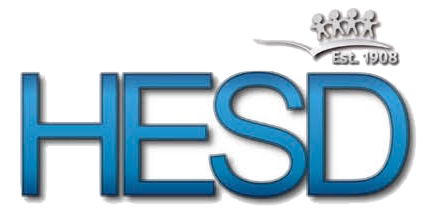The California Department of Education (CDE) has partnered with the News Literacy Project (NLP) to develop a news and media literacy webinar series: “News and Media Literacy for All.” Content specialists from the CDE, NLP, the Fresno County Office of Education (COE), San Diego COE, Santa Clara COE, and the California School Library Association have come together to provide an 8-part webinar series designed to increase news and media literacy skills for students, families, and educators.
Each session is 30 minutes long, with an optional 15 minute question and answer session after the webinar. Learn more about each session and register here. We also encourage you to join the group on California Educators Together, where you can find posted recordings for each session, resources, and more. Sessions include:
- Session 1: Introduction to the NLP, Misinformation Aware
Time: September 21, 3:30–4:00 p.m.
Audience: Community, families, and educators
Description: Discover how to teach students about misinformation — what it is, how it functions, how to spot it and how to debunk it. Learn more about our free, browser-based, standards-aligned platform for teaching news literacy along with our other resources.
- Session 2: Google Like a Pro
Time: October 19, 3:30–4:00 p.m.
Audience: Community, families, and educators
Description: The internet is inconceivably large and essentially endless! It can be a struggle to find accurate information. Understanding search algorithms can equip students with the ability to Google like a pro! Understanding how a program works helps use a program effectively. We will share eight tips to help improve search results.
- Session 3: Is it Legit?
Time: November 16, 3:30–4:00 p.m.
Audience: Community, families, and educators
Description: What happens when you encounter information that leaves you scratching your head and wondering whether it’s credible, an advertisement or even propaganda? If you simply go down the rabbit hole of the site that posted or created it, you likely won’t get the clarity or context you need to make an informed decision; instead, you most often get submersed in confirmation bias. So instead of going deep, go wide: employ lateral reading.
- Session 4: Misinformation and Artificial Intelligence’s Impact
Time: December 21, 3:30–4:00 p.m.
Audience: Community, families, and educators
Description: The state of today’s digital landscape includes challenges posed by generative artificial intelligence. Explore strategies for helping determine the credibility of evidence and sources as well as best practices for teaching about misinformation and conspiratorial thinking.
- Session 5: Checkology Lessons and Resources
Time: February 15, 3:30–4:00 p.m.
Audience: Grade 5–12 Educators, Instructional Coaches, Teacher Librarians
Description: NLP education is filled with activities, challenges and lessons. Take a deep dive into news literacy with lessons that develop and strengthen skills, enabling students to successfully and intelligently navigate our complex information landscape.
- Session 6: Civics/History Connection
Time: March 21, 3:30–4:00 p.m.
Audience: Grade 5–12 Educators
Description: Let’s explore how news and media literacy can support your goals. What do we want students to experience? What skills do we want students to have when they graduate? We will explore Newsroom to Classroom, an awesome opportunity to connect students to experts in the field.
- Session 7: English Language Arts
Time: April 18, 3:30–4:00 p.m.
Audience: Grade 5–12 Educators
Description: What does news and media literacy look like in the humanities? Identifying text purpose, analyzing arguments and evidence, and evaluating information are a part of multiple lessons educators can use in their classrooms. This learning lays the foundation for students to think critically. Our English Language Arts and social studies-aligned lessons help educators equip students with the tools to evaluate and interpret information and current events, knowing what to trust, share and act on.
- Session 8: Science, Technology, Engineering, and Mathematics (STEM)/Health
Time: May 16, 3:30–4:00 p.m.
Audience: Grade 5–12 Educators, STEM, Health, Physical Education
Description: New STEM-aligned lessons feature topics such as climate change, the COVID-19 pandemic, vaccines, medical misinformation, pseudoscience and conspiratorial thinking. These cross-curricular lessons support the development of science and engineering practices, such as analyzing and interpreting data, engaging in arguments using evidence, and using mathematics and computational thinking. This lays the foundation for students to think critically and evaluate and interpret information, and students learn what to trust, share and act on.

